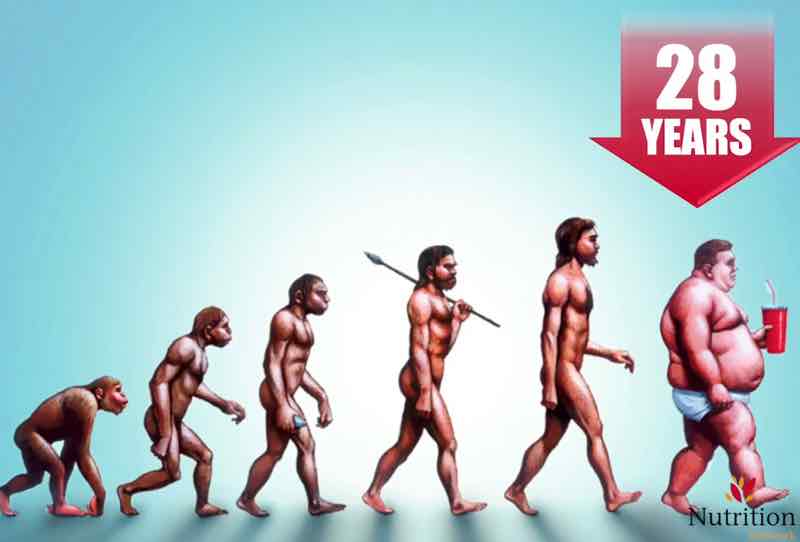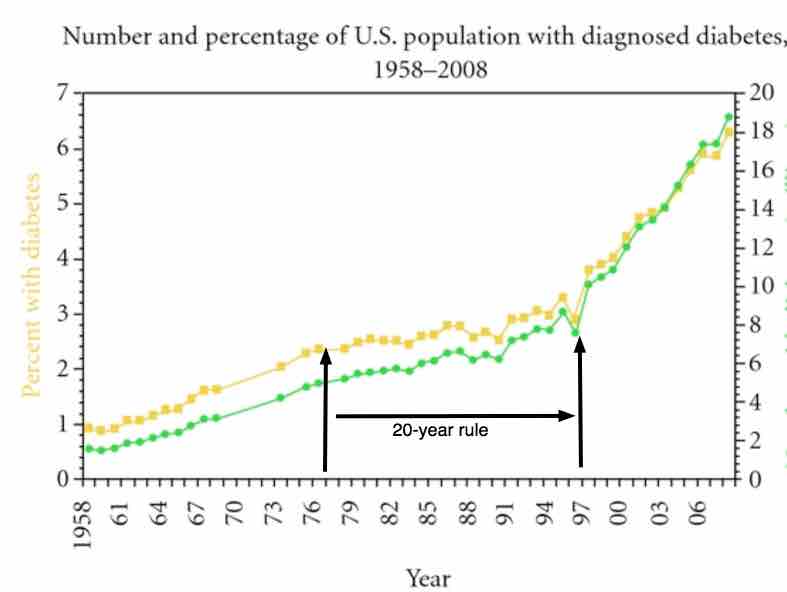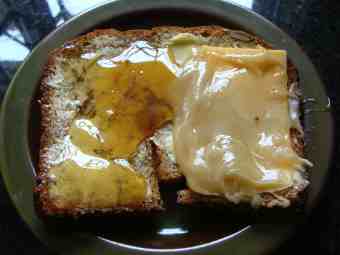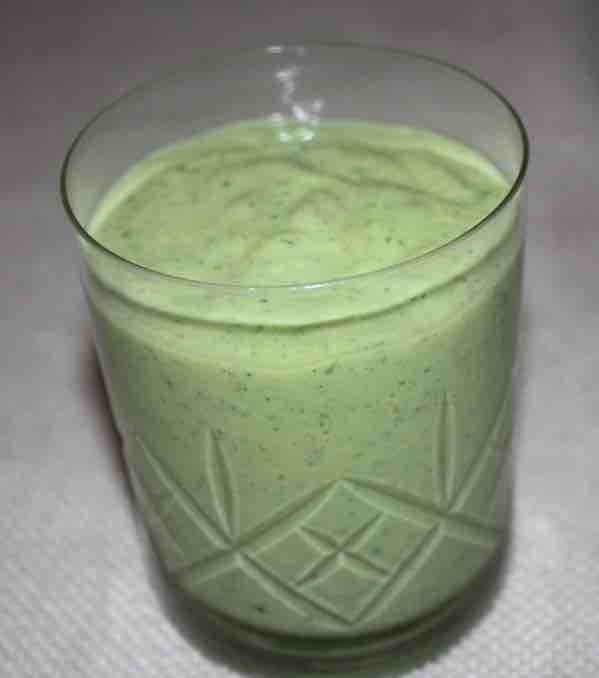- Bernard Preston homepage
- Starch
- Weight Loss Research
Weight loss research
Weight loss research explains why refined starches raise insulin levels and suppress another hormone called glucagon.
The new theory to study is called the the "carbohydrate-insulin model;" read more about it lower down.
As we all know only too well, diets for weight loss simply don't work; period. That research is based on a rigorous analysis of 31 long-term studies.
 With thanks to the Nutrition Network.
With thanks to the Nutrition Network."Diets do not lead to sustained weight loss or health benefits for the majority of people.”
- Prof Traci Mann, UCLA
What it means is that by going on a diet you are setting yourself up for disappointment and failure unless you are one of a very small group of people, around 5% who are extremely strong-willed. 95 percent after a year have not lost an ounce; and many have put on.
"We concluded that most of them would have been better off not going on a diet at all."
And really this is not something astonishing, is it? We all deep down know it to be true; we've been there, done it and got the T-shirt.
Energy-balance theory
The conventional logic is that if you eat more calories than you expend then you will put on weight. So all you have to do is cut back on your energy-dense food and increase the amount of exercise; then you will lose pounds. In theory it makes sense but in practice it simply doesn't work, as we all know.
Yes it is good to cut back on the amount of food we are eating which we did; and we did join a gym and got more exercise. So, what went wrong?
Many things as this is obviously a very complex issue as we shall see shortly but first and foremost is that it was all built on a lie. Anything that is founded on a falsehood will fail and this one was deliberately and intentionally done. A highly-esteemed researcher called Radley Keys crooked the books. More about that in a moment.
Then the second was the mistaken belief that to cut back on your calories it made sense to reduce the most energy-dense food, namely fat; and start to eat more carbs instead.
It is logical isn't it? It must be fat that makes us obese.
"For every complex problem there is an answer that is clear, simple and wrong."
H.L. Mencken
Severely cutting back the fat from our food leaves us constantly famished, so we are always snacking on carbs; that's where the real problem lies. Also as we desperately try to reduce calories, our bodies become more efficient at conserving energy.
It becomes steadily more difficult to get those pounds off.
There is a third reason. As doctors have adjured us to lose weight by cutting back on fat and to eat more starches they haven't taken one simple fact into account; it is very difficult to get unrefined carbohydrate. That too is built on a lie; millers are allowed by internal law to label their products "wholemeal" provided they do not extract more than 40% of the goodies.
So instead we have satisfied our constant pangs of hunger with sugary-drinks and snacks made from refined grains, mainly wheat and corn; severely disturbing the hormones that control appetite and fat deposition.
It is no mystery that the energy-balance theory has failed us so badly. In retrospect it should have been perfectly obvious and healthcare professionals should have seen it decades ago. It is an old wives' tale that is still advocated.
The carbohydrate-insulin model
The carbohydrate-insulin model is not new but it is being reshaped; updated research highlights why the less fat, more carbs programmes have failed us so dismally.
A famous South African researcher, Dr George Campbell, hypothesized after studying the diet of the Zulu people as they moved from rural areas to the cities, his now-famous "twenty-year rule;" after two decades of consuming more than 20 teaspoons of sugar per day (around 40kg /pa) we will become diabetic.

What he perhaps didn't realise was that the Zulu people not only greatly increased their sugar intake when they moved to the cities, but they also changed from eating maize that they ground themselves to highly-refined cornmeal; a double whammy. Then the 10 year diabetes rule kicks in.
It was not only the sugar at work despoiling their bodies but all the other refined carbs that typify the urban-dweller too.
Refined-carbs are tasteless so we add a lot of sugar and salt to make them more palatable. Would you eat a pancake made using cake flour without the syrup?
Then began a slew of low carbohydrate fads, starting with Dr Atkins that were certainly a step in the right direction from the traditional energy-balance theory that promised so much and delivered so little.
Known generally under the broad umbrella as ketogenic diets they also failed because giving up bread and legumes, for example, for ever just was a bridge too far; folk had great difficulty keeping to it. Luckily it's not necessary.
And these very low carb diets are counter to the massive amount of research concluding that whole-grains and legumes are profoundly good for us.
"Eating processed, rapidly digestible and highly glycaemic carbohydrates raises insulin levels and suppresses glucagon. The body responds by storing the excessive amount of calories as adipose tissue."
Processed carbs
A new group of scientists under the leadership of Professor David Ludwig[1][2] from Harvard University has shed new light on this tortuous subject.
Their research concludes that it is not all carbs but those starches that are highly processed that interfere directly with our hormones; they raise insulin levels and suppress glucagon, a lesser-known substance produced by the pancreas.
Processed carbs force the liver to suck up large amounts of sugars from the portal blood stream, producing high levels of triglycerides and greater storage of glucose in adipose tissue; and increased hunger as leptin sends messages to the brain that we should eat more.
Their conclusion is that we should stop counting calories, focus far less on how much we eat, though that is important too; and instead concentrate on avoiding the rapidly-digestible and highly glycemic carbs that have such a profoundly negative influence on our hormones.
glucagon
Glucagon is the lesser known twin produced by the pancreas; in the so-called alpha cells. The hormone is released directly into the blood stream; it prevents glucose levels from dropping too low by activating several different mechanisms.
- It stimulates fat cells to produce sugars by a process known as gluconeogenesis.
- It also stimulates the production of sugars from protein; this is also known as gluconeogenesis.
- It helps convert glycogen that is stored in the liver into glucose[7].
- It slows the absorption of glucose from the portal blood system by the liver.
If glucose levels drop too low for the brain to function we can go into a coma, and even die.
[7] Glyconeogenesis.
By suppressing glucagon, high levels of blood-glucose from our food disable the fat cells from releasing energy into the system; instead it is stored making us even more obese.
The term used is "chronic over-consumption of carbohydrate;" and especially those that are highly refined.
Weight loss research
Weight loss research proves diets do not lead to sustained benefits.
Nor does exercise alas contribute much to weight loss research as our basal energy-expenditure drops as we exercise; and increasingly so in the obese.
In those who have a BMI over 35, the very obese, only half the calories expended in exercise actually contribute; so says the weight loss research[5].
"Obesity is among the most important risk factors for COVID-19 susceptibility and severity."
Satiety
Satiety is provided by fat, the fibre in whole-grains and protein; the feeling of fullness.
Legumes score highly being rich in fibre and protein; and some of them like peanuts in fat too.
By reducing the fat from their foods and, unable to readily get whole grains, constantly famished people turn to tasteless, highly refined carbs which they make palatable with large amounts of sugar. No diet was able to counter this trend; the Western world soon became increasingly obese. T2DM followed two decades later according to Campbell's twenty-year diabetes rule mentioned later.
Weight loss research confirms that none of these diets work.
So what does work then?
- Everyone agrees that we should all walk more; there's no gainsaying that. What I would add is to take a ten-minute stroll after any meal where you think you have had too much starch; even good carbs like butternut soup and 100% whole grain bread.
- Cut out the refined carbs for ever; that means strictly limiting sugar and commercial bread. It will be painful initially; if you cannot see yourself foregoing your daily toast consider baking it yourself from whole grain. It takes only five-minutes[3].
Only make changes to your diet that you are prepared to continue with for the rest of your life; anything less is blowing in the wind and doomed to fail.
Newsletter
Our newsletter is entitled "create a cyan zone" at your home, preserving both yourself and Mother Earth for future generations; and the family too, of course. We promise not to spam you with daily emails promoting various products. You may get an occasional nudge to buy one of my books.
Here are the back issues.
- Lifestyle and ideal body weight
- What are ultra-processed foods?
- Investing in long-term health
- Diseases from plastic exposure
- Intensive lifestyle management for obesity has limited value
- A world largely devoid of Parkinson's Disease
- The impact of friendly bacteria in the tum on the prevention of cancer
- There's a hole in the bucket
- Everyone is talking about weight loss drugs
- Pull the sweet tooth
- If you suffer from heartburn plant a susu
- Refined maize meal and stunting
- Should agriculture and industry get priority for water and electricity?
- Nature is calling
- Mill your own flour
- Bake your own sourdough bread
- Microplastics from our water
- Alternative types of water storage
- Wear your clothes out
- Comfort foods
- Create a bee-friendly environment
- Go to bed slightly hungry
- Keep bees
- Blue zone folk are religious
- Reduce plastic waste
- Family is important
- What can go in compost?
- Grow broad beans for longevity
- Harvest and store sunshine
- Blue zone exercise
- Harvest and store your rainwater
- Create a cyan zone at your home
"We find that Covid-19 has emerged as the leading cause of death. It is likely to become an endemic disease in the near future with a continued effect on society in the years to come. There is no end in sight."
- Discovery Life CEO, Riaan van Reenen.
Wholemeal bread and honey

Sourdough bread made from wholemeal flour is both tasty and more digestible, especially for those who are gluten-intolerant. The ingredients for this easy recipe can be prepared literally in only five minutes; I do it every day.
Why is whole-grain better is an important question to understand.
German researchers after testing 8 different honeys, 6 from local beekeepers and two from commercial bottlers came up with an astounding discovery. That which is unprocessed has a low glycemic index despite consisting mainly of glucose and fructose; it gives no blood-sugar rush[4].
It even lowers the fasting blood glucose.
But honey from commercial bottlers has a very high GI.
This is entirely in keeping with the insulin-carbohydrate model; it is the refined and processed starches, sugars and honeys that disturb our hormone balance.
Add extra protein such as a slice of cheese and you are home and dry.
Obesity
Having said all of this, the truly obese who have a body-mass index of over 30 and unstable diabetics have to strictly limit all carbs, even the good ones for a period. It's the only way to get that excess flab off. This is where the Banting diet for example comes into its own; as a temporary measure.
But do recognise that without a change of lifestyle the Banting diet too will certainly fail just like all the rest. I have seen it in many patients; impressive weight loss in a matter of months but a year later right back to square-one. More exercise, especially after a starchy meal and keeping sugar and cake flour goodies for high and holy days are the only way forward.
If you are unable or unwilling to do that, don't bother starting this journey; it too will fail. Professor Ludwig from Harvard and his international team of researchers are spot on; it is the refined carbs that disturb our hormone-balance and make it impossible to lose weight with any diet if we return to eating highly glycaemic carbs.
Copy and paste "banting diet" into Site Search in the main menu for more information.
One of the most astonishing facts, not widely known is that once diabetics cut out all the refined carbs, potatoes from cold-storage and sugar from their food they will immediately have to halve their insulin injections. This obviously should only be done under the guidance of your doctor; this is a very serious disease and has to be carefully managed.
New weight loss drugs
New weight loss drugs like the GLP-1 receptor agonist Semaglutide are certainly effective but they come at a price. Like all medication they have side effects which sometimes can be severe. They mimic certain intestinal hormones.
Relatively common side effects include nausea, vomiting and diarrhoea; and oddly constipation too. New warnings from JAMA[7,8] state they bring a nine-fold higher risk of pancreatitis and four times greater chance of an intestinal obstruction.
They cause a three times greater risk of gastroparesis. These risks are relatively rare but obviously they are severe and can even lead to death.
Thyroid carcinomas are currently under investigation too.
Our standpoint remains that the obese have three options.
- Do nothing and accept the chronic degenerative diseases like diabetes and knee arthritis that are associated with obesity.
- Take medication which does work but is exceedingly expensive and comes with a variety of nasty side effects, some which are severe.
- Cut out refined carbs and sugar for the rest of their lives; zero cost, in fact a saving with no side effects but complete loss of the sweet treats except on high and holy days.
"Once people stop taking drugs like GLP-1 agonists either by choice because of cost or lack of access they regain most, if not all the weight they lost."
- JAMA[10]
Are you prepared to take these drugs for the rest of your life? If not, don't start; they will lead you directly to the slippery slope of weight cycling and early frailty.
Weight cycling
Researchers have found that regaining weight adds fat but the muscle lost in dieting is not restored; the beginning of frailty. This simply confirms what is already known; if we go on any programme to slim down and then backslide, we would have been better off had we never started.
"Recent studies have suggested that weight cycling is progressively associated with increased fat and reduced muscle mass; and a progressive risk of sarcopaenia, weakness and frailty in people with obesity[9]."
Professor Tom Yates stresses the need for resistance exercise to minimise loss of muscle mass when using caloric restriction for dieting.
More than a quarter of British adults are obese and the numbers are still increasing; in the USA it's two-thirds. The economic burden to the UK is estimated at 27 billion pounds per annum. There were five times as many deaths amongst those with a BMI over 35.
The message is clear. Don't go on diet unless you plan to make the changes permanent; for the rest of your life.
Only make changes to your diet that you are prepared to continue with for the rest of your life; anything less is blowing in the wind and doomed to fail.
Guilt
There's a lot of guilt associated with obesity. We genuinely tried and did our best yet still failed.
It's time to shed that guilt. The weight loss research concludes that the obese and the vast majority of doctors too were duped by scheming, dishonest scientists like Radley Keys.
It's not your fault you failed; you were misled into thinking that you must cut out all the fat from your diet and turn instead to carbs for energy.
Nevertheless sugar and all refined starches must go; permanently. Use natural honey for sweetening and wholegrain bread for your daily fare; you can bake the best loaf in the world for around a dollar, taking up only five-minutes of your time.
It's either that or face wearing a mask and living in fear of being infected for the rest of your life if this virus indeed becomes endemic. Other weight loss research makes it very clear that you will also be spared knee replacement surgery, statins and hypertensive medication; and a host of other problems.
Continuous glucose monitors
Continuous glucose monitors give you real-time feedback on how your body reacts to a carbohydrate you may be concerned about; you will know within minutes what it is doing to your blood sugar.
What is a CGM will give you the perspective of a pharmacist who deals with these devices daily[6]. Despite the cost every obese person and those living with diabetes should consider using one for two week periods; it would spare you from the insidious fear of kidney failure, blindness and amputation of the lower leg.
Radley Keys
Radley Keys was an American researcher who became obsessed with the belief that cholesterol was the underlying cause of rising rates of cardiovascular conditions. Correlating animal fat consumption with the prevalence of heart disease in different countries he came to the conclusion that we should consume much less red meat, dairy products and eggs; and instead eat more carbohydrate.
But he crooked the books; he carefully scissored out those countries which did not conform to his theory, entirely negating his weight loss research.
In 1977 when the McGovern committee accepted his recommendations and made them public, Americans sharply reduced the animal fat in their diets and instead turned to getting energy from starches; from refined carbs and sugar in fact.
Two decades later George Campbell's 20 year rule was overwhelmingly verified as the rate of type-2 diabetes began to rocket; and is still climbing.
Today nearly 50% of all adults enjoying typical grocery store food have a serious problem with blood sugar; and all the attendant chronic degenerative diseases. It comes as no surprise that we have become so sickly.
Smoothies

This nutritious green smoothie blended with all the good stuff, makes a complete breakfast; you will not be famished at 11 o'clock. Do it in less than five-minutes; it fits entirely with the sound weight loss research.
Side effects of GLP-1 medications
GLP-1 medications are an alternative for those unwilling to forego refined carbs for ever; they are prescribed for obesity and type 2 diabetes.
But they come with awesome side effects including nausea, acid reflux and fatigue; sagging and aging of facial skin too. They are brutally expensive; and also must be taken for ever.
Constipation is often a problem too. Patients taking these medicines have difficulty consuming the required amount of fibre due to slowed gastric emptying.
Treating symptoms instead of the underlying cause of disease always comes at a price. Research shows that the vast majority of those suffering from obesity and associated type-2 diabetes can be brought entirely into remission without the use of any drugs; by using the correct food as medicine and taking short brisk walks after starchy meals.
All forms of dieting including GLP-1 drug use are associated with worrying muscle and bone loss; but this can be entirely counted by an increase in exercise. Exposure to sunshine helps supply vitamin D too.
A vitamin B12 deficiency is another side effect; consequently there may be anaemia. Perhaps the parietal cells in the stomach that secrete intrinsic factor are affected by the medicine.
Weight loss research in short recommends more exercise, restriction of refined carbs and avoidance of GLP-1 medication because of its potentially dangerous side effects.
Hippocrates the father of medicine said it all; he is revered and totally ignored.
"Let thy food be thy medicine, and medicine be thy food."
Hippocrates (460 - 370 BC)
- The carbohydrate-insulin model: a physiological perspective on the obesity pandemic
- Fierce debate over a new theory to tackle the global obesity pandemic
- Artisan bread
- Glycaemic and insulinaemic properties of some German honey varieties
- Energy compensation and adiposity in humans
- What is a CGM?
- Overweight, Obesity, and Health Risk @ JAMA
- What Is the Dark Side of GLP-1 Receptor Agonists?
- Impact of weight loss and weight gain trajectories on body composition in a population at high risk of type 2 diabetes
- Continued Treatment With Tirzepatide for Maintenance of Weight Reduction in Adults With Obesity
When browsing use right click and "Open Link in New Tab", or you may get a bad gateway signal.
Did you find this page interesting? How about forwarding it to a friendly book or food junkie? Better still, a social media tick would help.
- Bernard Preston homepage
- Starch
- Weight Loss Research
Address:
56 Groenekloof Rd,
Hilton, KZN
South Africa
Website:
https://www.bernard-preston.com